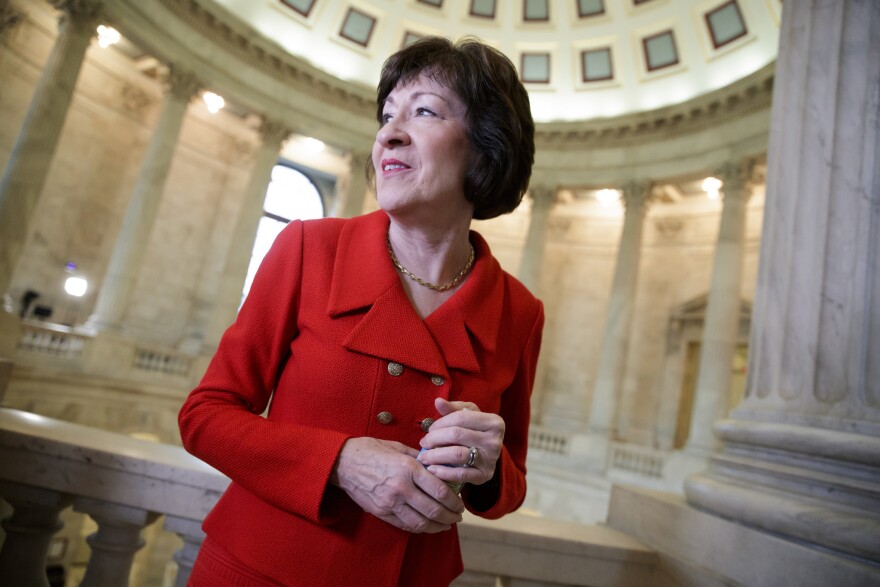Originally published 12:23 p.m.
The American Civil Liberties Union (ACLU) is running a television ad campaign in Maine asking Republican U.S. Sen. Susan Collins to demand that the next U.S. Supreme Court nominee take a public position on a landmark abortion ruling.
The ad begins by highlighting Collins' reputation as an independent voice in the Senate who has long supported the reproductive rights of women.
It then asks Collins to make her vote contingent on the nominee's position on Roe v. Wade, the 1973 ruling that prevents states from banning abortions.
"Trump's Supreme Court nominee must publicly declare a position on Roe. Tell Susan Collins: we can't gamble on this," the narrator says.
Collins says she won't support a nominee who is openly hostile to Roe v. Wade, but she has also voted to confirm conservative judges who haven't taken a definitive position on the ruling.
The ACLU is also running ads in Alaska, where Sen. Lisa Murkowski is considered another potential swing vote.
President Trump is expected to announce his pick for the high court on Monday night. The president's choice will be heavily scrutinized, as will Collins' vote to confirm or not.
The nominee will replace retiring Justice Anthony Kennedy who, like Collins, is often considered a swing vote.
The stakes are high for progressives, who worry that Trump's choice could upend decades of jurisprudence on abortion rights, voting rights and civil rights.
The ACLU's request that the nominee declare a position on Roe v Wade is typical of interest groups, but typically sidestepped by high court nominees.
During her 1993 confirmation hearing, Justice Ruth Bader Ginsburg refused to answer questions about cases that could come before the court. Ginsberg said answering the questions would violate her oath to impartiality and "display disdain for the entire judicial process."



